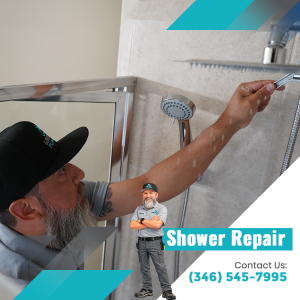How to Maintain Water Quality in Good Condition?
Tips and Best Practices from Lone Wolf Plumbing LLC
Water quality is a crucial aspect of maintaining a healthy and comfortable home environment. Poor water quality can lead to various health issues, plumbing problems, and an overall decline in the well-being of your household. At Lone Wolf Plumbing LLC, we understand the importance of clean, safe water and are committed to helping homeowners achieve and maintain it. Here are some essential tips and best practices to ensure your water remains in excellent condition.
1. Regular Testing and Monitoring
Regular water testing is the first step in ensuring water quality. It helps identify any contaminants, such as bacteria, lead, or nitrates, that could pose health risks. Consider testing your water at least once a year or more frequently if you notice any changes in taste, color, or odor.
2. Maintain Your Plumbing System
A well-maintained plumbing system is key to preventing water contamination. Regularly inspect your pipes, fixtures, and water heater for signs of corrosion, leaks, or buildup. Addressing these issues promptly can prevent contaminants from entering your water supply.
3. Use Water Filtration Systems
Investing in a good water filtration system can significantly improve the quality of your water. There are various types of filtration systems available, including carbon filters, reverse osmosis systems, and UV purifiers. Choose the one that best suits your needs based on the specific contaminants found in your water.
4. Prevent Backflow
Backflow occurs when contaminated water flows backward into your clean water supply. Installing backflow prevention devices and regularly checking them can help protect your water from contamination. Lone Wolf Plumbing LLC can assist in installing and maintaining these crucial devices.
5. Clean and Maintain Water Tanks
If you use water tanks for storage, ensure they are regularly cleaned and maintained. Sediment buildup and algae growth can affect water quality. Clean your tanks annually and inspect them for any signs of contamination or damage.
6. Be Mindful of What Goes Down the Drain
Avoid disposing of hazardous chemicals, medications, or non-biodegradable items down your drains. These substances can contaminate your water supply and harm the environment. Proper disposal methods include local hazardous waste collection sites and designated medication disposal programs.
7. Address Hard Water Issues
Hard water contains high levels of minerals like calcium and magnesium, which can affect water quality and damage your plumbing system. Installing a water softener can help reduce the hardness of your water, extending the lifespan of your plumbing and improving water quality.
8. Stay Informed and Educated
Stay informed about water quality issues in your area by following local water reports and news. Education is a powerful tool in maintaining water quality, as it empowers you to take proactive steps in protecting your home's water supply.
Maintaining high-quality water in your home is essential for the health and well-being of your household. By following these tips and best practices, you can ensure your water remains clean, safe, and enjoyable. At Lone Wolf Plumbing LLC, we are dedicated to providing expert advice and services to help you achieve the best water quality possible. Contact us today for all your plumbing needs and water quality solutions.
Lone Wolf Plumbing, LLC is a dynamic and efficient plumbing service provider known for delivering top-notch plumbing solutions. Specializing in a wide array of services ranging from general plumbing to intricate installations and inspections, we stand out for our swift and efficient service delivery, all executed with the highest standards of quality. At the heart of our operations is a commitment to excellence, ensuring that every task we undertake not only meets but exceeds our clients' expectations.











